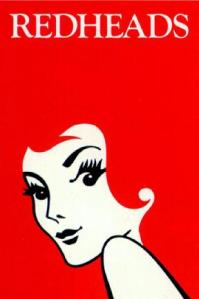I love new words. Especially those that seem to have emerged spontaneously from who-knows-where.
Listening to the news this morning, I heard mention of the word “rebirthing” in relation to cars and seemingly (on first inference) illegal activity. This interpretation came less from “rebirth” than from words like “racket”, “illegal” and the giveaway, “crooks”. I discovered more on the ABC website http://www.abc.net.au/7.30/stories/s126387.htm
Professional car thieves around Australia are now running a lucrative racket based on what’s called ‘car rebirthing’. It’s a practice which involves making a stolen vehicle appear legitimate by using the identification number from another vehicle.
A bit more investigation (aka Google) revealed 326,000 hits. I’m amazed. Where has this word been all this time? I know it’s relatively new because its use in the print media is still accompanied by inverted commas eg the headline: States struggle to combat car “rebirthing”. But if the racket continues, we’re sure to lose the quote marks.
Again with Google, I sought to discover how flexible it has become, grammatically speaking, in its presumably short life. Already we have the gerund – rebirthing. And the adjective rebirthed (eg a number of rebirthed cars…). There’s the infinitive form to rebirth (eg it’s still possible to rebirth a stolen vehicle in South Australia using a NSW identity). And the passive infinitive (eg They must know that some of these cars… are going to some unscrupulous…characters to be rebirthed.) And finally, there’s the simple common noun – rebirths (eg there’s an estimated 5000 rebirths a year), which like many common nouns, gives one the feeling of a well-established practice.
I predict new forms coming along any day now, like the agent noun rebirther: eg What do you do? I’m a car rebirther. How about you? Or the present participle form eg What time will you be home, honey? Late, I’m afraid, I’ll be rebirthing all day.
One thing that I find quite curious is the actual choice of word. Of course, we’ve seen/heard rebirth used before, in the context of certain religious beliefs and also of fringe health remedies – where a person’s crippling mental problems are tracked back to an allegedly difficult birth, and through a guided mediation, that person is allowed to rebirth, and in doing so successfully, allegedly casts away all the heavy baggage and can start again, fresh and innocent. (All in all, this sounds a lot “cleaner” than years of psychoanalysis.).
But such a process is quite removed from the illegal racket of car rebirthing. All of which suggests to me that it was likely to have been someone within the automobile racket who came up with the name, much as used furniture might be called “pre-loved” or designer clothes “recycled” or “vintage(d)”.
It’s a nice example of how words don’t drop off the backs of trucks, without heritage or provenance. They arrive with meaningful connections and then proceed to develop in ways that speak volumes about the work they do and the societies they live in.
 The question then becomes, will new Australian Prime Minister Julia Gillard turn auburn or stay a redhead?
The question then becomes, will new Australian Prime Minister Julia Gillard turn auburn or stay a redhead?



